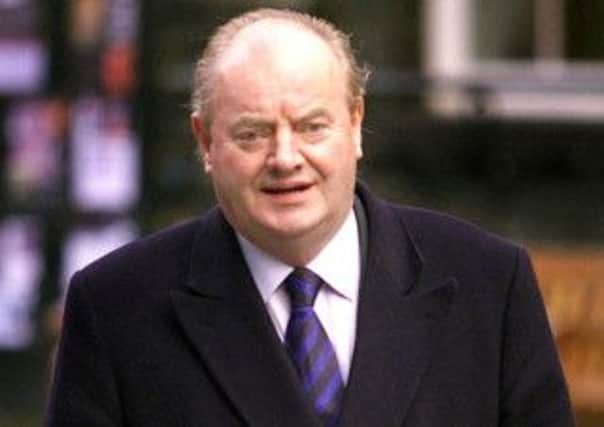Obituary: Jimmy Wray, former Labour MP


FOR 18 years, Jimmy Wray was a devoted Member of Parliament for Glasgow Provan and Glasgow Baillieston and a staunch supporter of the Labour Party. He worked tirelessly on behalf of his constituents and always found time to help those with a problem.
He campaigned assiduously on behalf of the poorer areas in his constituency, emphasising quality of life issues such as drug and alcohol abuse and the rising prevalence of knife crime in the area. Even after he retired in 2005, due to ill health, Wray continued to support the Labour Party in any way he could throughout Scotland. He was firmly on the left of the party and was a member of the left-wing Socialist Campaign Group within the party that rivalled the Tribune Group.
Advertisement
Hide AdAdvertisement
Hide AdFirst Minister Alex Salmond paid tribute to Wray yesterday saying: “Jimmy was a fixture in Glasgow politics for many years both at council and Parliamentary level. I was a parliamentary colleague of Jimmy’s for a number of years and always admired the forthright way he spoke out for his constituents.”
James Wray was one of a devout Catholic family of nine and was brought up in the Gorbals, showing talent as a boxer.
On leaving school he worked as a heavy goods driver and coal miner. Wray had been interested in politics from an early age and acted as a tenants’ leader. He displayed an early militant tendency in the 1960s when he organised a rent strike in the Gorbals.
He was elected as a councillor for the Kelvinside division for the Glasgow Town Council in 1964. When the boundaries were changed in 1975, Wray became a councillor for the Strathclyde Regional Council representing the Gorbals.
After a fierce battle with a Militant candidate, Wray was selected to fight the seat for the Westminster parliament of Glasgow Provan in 1967. He won with a massive majority of 18,000 votes and it was a seat he was to hold at the general elections of 1992, 1997 and 2001. Latterly, the name of the constituency was changed to Glasgow Baillieston.
He pursued many causes on behalf of his constituents and took up many local issues at Westminster. Wider matters on which he spoke eloquently in the House included an opposition of the fluoridation of water.
Wray successfully blocked the implementation of fluoridation in court by arguing it violated various acts. Wray had a shrewd understanding of the House of Commons and its procedures – knowing how to use them to the best advantage of a back bencher.
Other issues on which Wray spoke was in favour of foundation hospitals, against stopping climate change and a ban on the carrying of knives. He demanded that the troops should be withdrawn from Ireland.
Advertisement
Hide AdAdvertisement
Hide AdHe campaigned vociferously when there were plans to ban boxing. As a lover of the sport, he organised a lunch in London that was attended by the likes of Frank Bruno, Prince Naseem and Frank Warren. He also strongly supported the plans to hold Mike Tyson’s controversial fight in Glasgow in 2000. Wray was an active member of the board of the Scottish Ex-Boxers Association.
In 1997, with the addition of much of the Shettleston constituency, Wray’s majority increased to 14,165 over the SNP. The boundaries of the seat were redrawn in 2005 and it has now been renamed Glasgow East.
Wray was a charismatic MP, larger than life and an avuncular figure with a warm and generous nature. He was of an independent mind and remained fiercely loyal to the traditions of the Labour Party and of his own Glasgow roots.
Wray certainly never fitted with ease into the concept of New Labour. In one of his visits to the divorce courts, his QC said in his defence: “Political correctness is obviously not a familiar concept to him.” Wray found it delightfully contrary that his pair when voting in the Commons was Michael Heseltine.
He remained very much his own man, a passionate and life-long supporter of Celtic who sponsored the Under-12 Gorbals United FC. He was president of the Scottish Federation for the Blind and worked on behalf of St Enoch’s Drug Centre.
There has been a long-running controversy over his correct age. During a defamation case against the Mail on Sunday in 2000, Wray caused a stir by declaring his age as 64 when his date of birth was listed as 28 April, 1938. When questioned on the discrepancy, he simply replied a “researcher’s error”.
Wray had a colourful personal life and was thrice married – all ending in divorce. Wray is survived by his four children.
ALASDAIR STEVEN